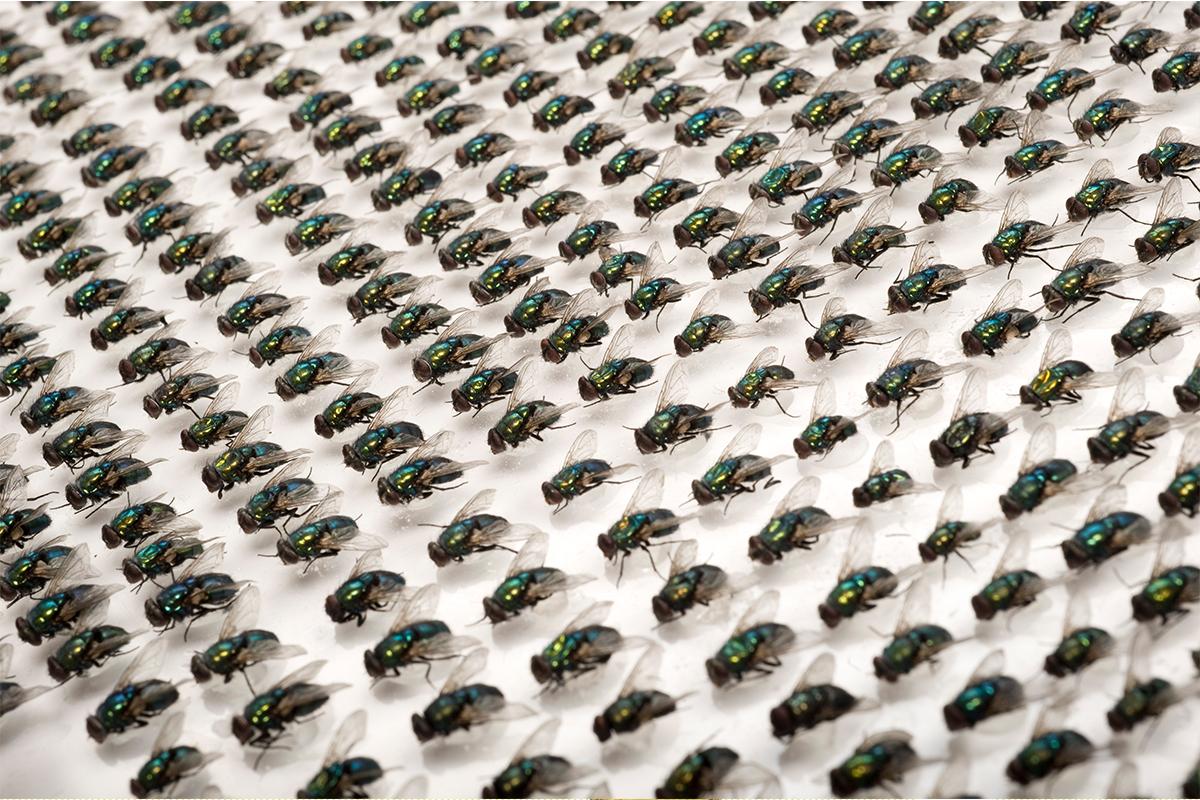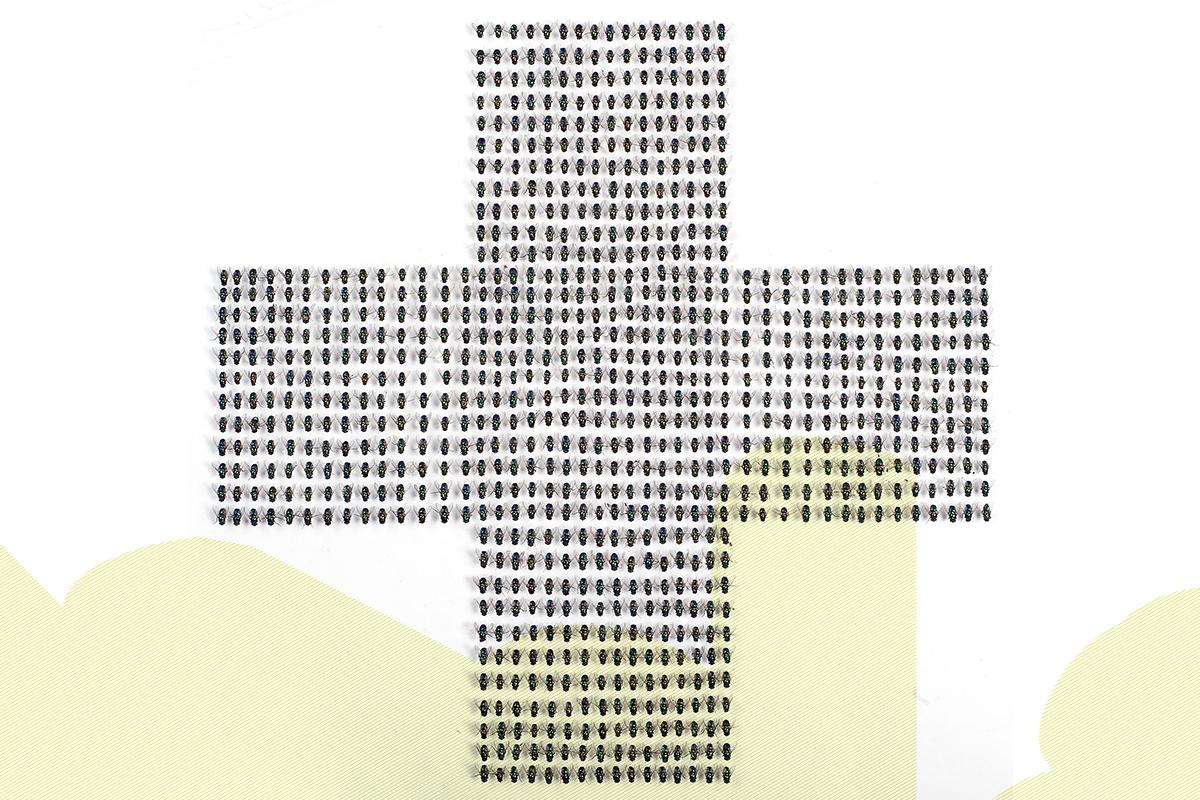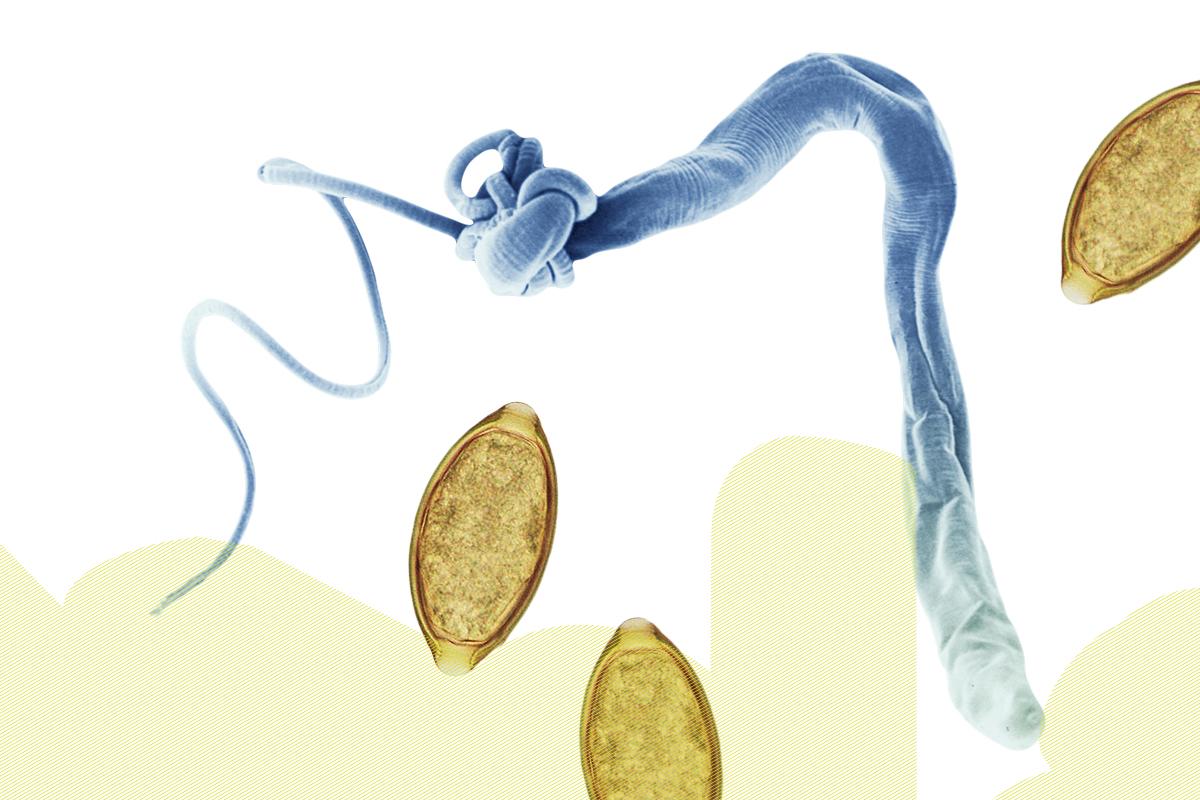
Flies as surgeons, anti-inflammatory leeches or swallowing worm eggs – sounds disgusting, but for some patients this is a little evil compared to the effect. Parasites are not only carriers of the disease, but can also act as “benefactors”. Here are our three favorite stories.
Fly Maggots as Biosurgeons

The use of sterile fly maggots as “medical assistants” against multiresistant germs has saved some patients from leg amputations! The maggots gently remove the dead tissue from the wound. No surgeon can separate clean tissue from dead so cleanly with a scalpel. They produce a beneficial, wound-healing mixture of digestive enzymes and anti-inflammatory substances. Applied in opaque sacks, the patient is spared the sight of the maggots. When patients are assured that there is no danger to them, that the animals cannot escape their “workplace”, they accept the therapy better.
Not so new therapies, by the way. For thousands of years the Ngemba aboriginal tribe has known about treating wounds with fly maggots. The Mayans also used this practice. In the American Civil War fly maggots were purposefully used for treating wounds and in the First World War they were still used to clean wounds. However, since antibiotic resistance has continued its forward march the number of patients with uncontrollable, chronic, and incurable wounds is constantly increasing, and so some doctors are daring to test old methods anew.
Leech – Esteemed Bloodsucker

The secret of the medicinal leeches for medicine lies in their salivary secretion that contains many highly effective components. This saliva dilates the blood vessels and inhibits blood coagulation. In this way a leech can suck blood without blocking its throat. Due to the pain-relieving and anti-inflammatory effects, the host rarely notices its involuntary blood donation. The areas of application for leeches are many. The most common are the prevention of blood clots, the improvement of blood flow, and the healing of wounds. Leeches cannot be reused after an application, primarily to prevent HIV infections.
New Paths – Worms on Prescription

Chronic intestinal inflammation is caused by an immune dysregulation. Can worms help? The immune system of the host reacts to a worm infection with a cascade of defense mechanisms. If the worm wants to survive, it must defend itself. This is why worms interfere extensively in the immune response of their host. They downmodulate the host’s immune response, reduce inflammation, and thus disarm the immune system, so to speak. How they achieve this is far from understood, but it is being actively studied. Still, this ability of the worms is used today and is employed in medicine to help control chronic intestinal inflammation.
In therapy, the patient regularly swallows a specific number of worm eggs. The hatched larvae have the desired anti-inflammatory effect, because they colonize the intestine briefly without invading the host, in fact they die after a short time. This therapy has been successfully tested in the USA and in Europe.
Here you get back to the overview.